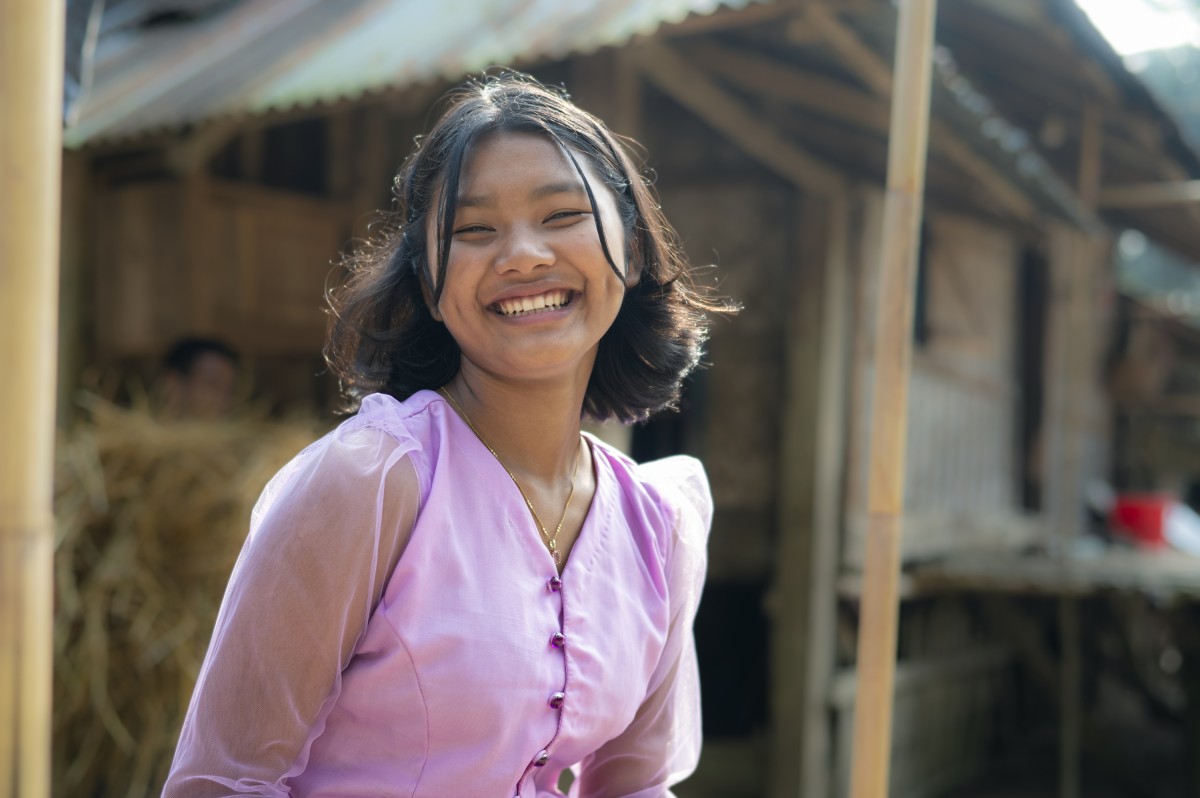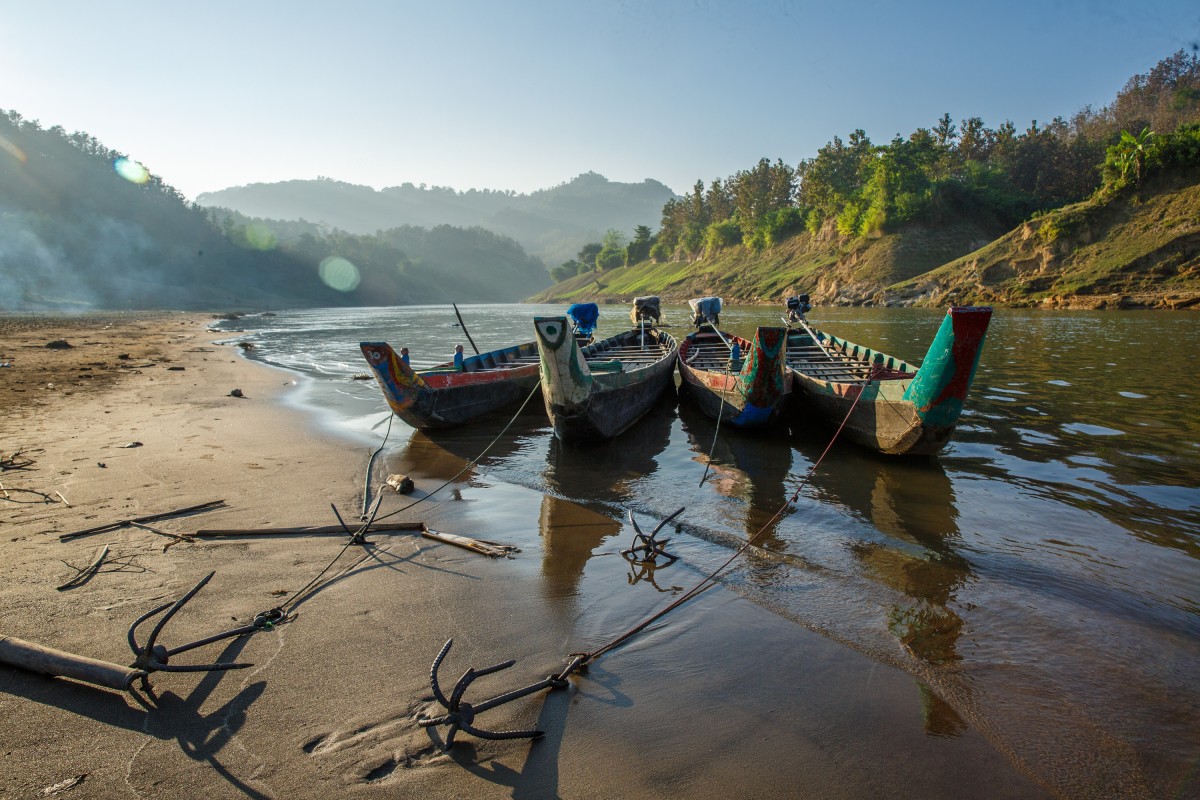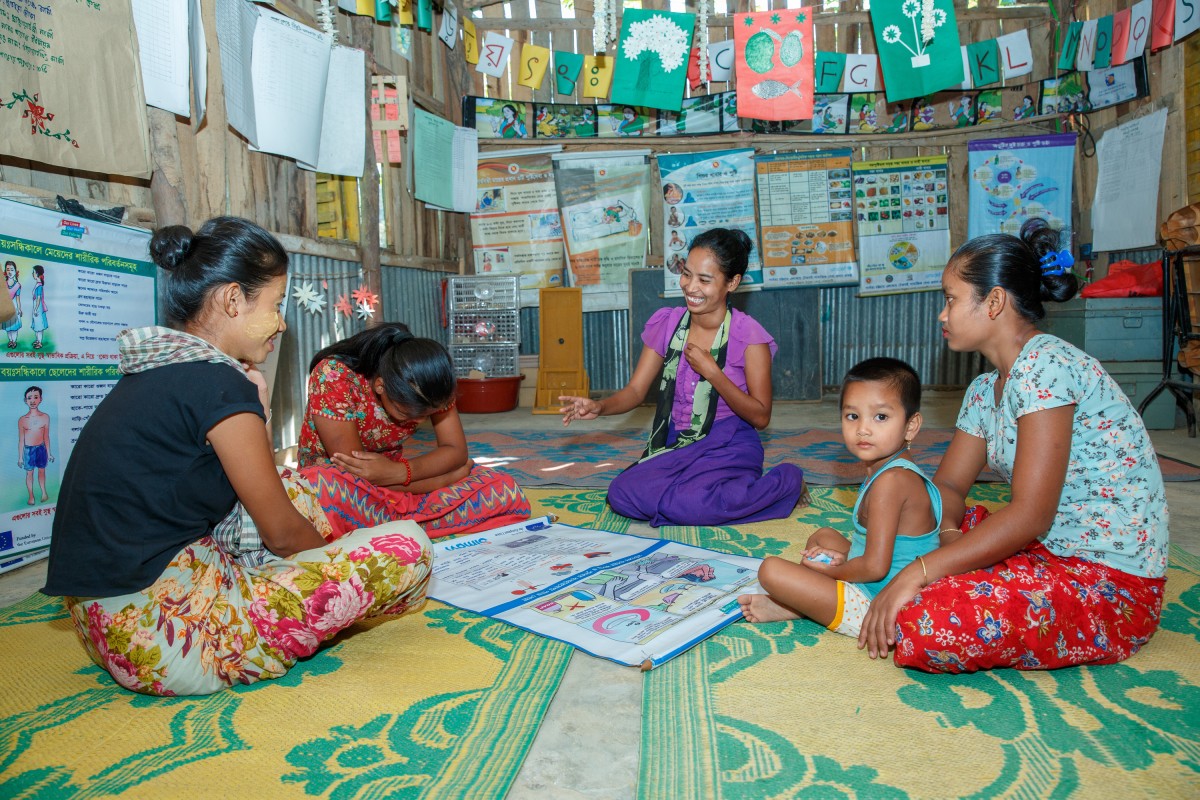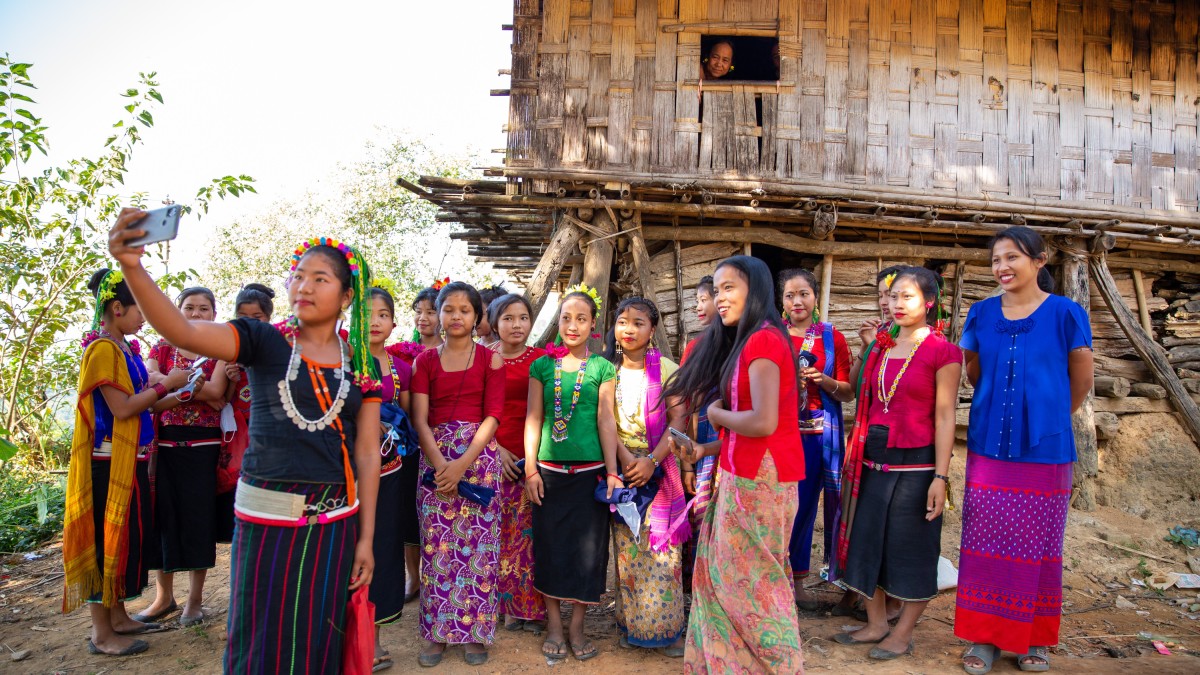How creative projects are preventing violence against women in Bangladesh
In this Simavi programme, girls and women are supported to make decisions about their sexual and reproductive health without violence, coercion and discrimination.

The 5-year programme started in January 2019, with the support of the European Union. 16-Year-old Lalasing Marma from Bandarban tells her story.
Lalasing Marma: ‘I love reading storybooks in my spare time, and I like to talk to my friends. When I was in class 8, I was often bullied by street boys. My mother would send my father to school and tell me that I should go to school together with my friends instead of going to school alone. We still often see violence against women in our society.’

Lalasing is from Bandarban, a community in Chittagong Hill Tracts (CHT). The CHT are in the southeastern part of Bangladesh. It is home to 11 indigenous communities, also known as the Jumma people. Simavi is working with 12,000 young women and girls, their families, and their communities. Since 2020 Simavi has established hundreds of girls' clubs in communities to teach comprehensive sexuality education, and trained about 249 health service providers on providing youth-friendly services to the region. We also worked on building better WASH and menstrual health facilities in 150 local schools.

Last year 842 girls’ groups worked on a creative project about a key issue they would like to see changed in their community. According to the girls, the most urgent issues in their communities are, among others: the practice of child marriage; taboos surrounding menstrual health and a lack of proper menstrual health management; gender based and domestic violence; gender inequality and challenges to girls’ education; the lack of economic empowerment of girls; the quality and accessibility of sexual and reproductive health services; and environmental and climate related problems.
Girls chose a creative format to sensitize their families on these subjects, friends, neighbors, community leaders, and government stakeholders. They prepared drama plays, painted posters, wallpapers and leaflets, made handicrafts, organized environment cleaning and planting days, art exhibitions from drawings, paintings and pictures, and created performances using dance, song and video art.
Lalasing: ‘I want men and women to have equal rights. Just as girls will work outside the house, boys will also do housework. I want this to be understood by everyone. The posters that we have made – all members of a family should see them.’

The girls' clubs aim to create a safe place for girls to come together, where they learn more about their sexual health and reproductive rights. The groups consist of about 10 to 20 girls and are each led by a female mentor from the community. The girls from the clubs in turn inspire their friends, sisters and mothers. This is how we work together on change, on long-term impact.
Lalasing: ‘We have participated in a variety of activities at the Girls Club. After coming here, I became aware of my rights as a girl. Mentors have taught us to think that there is no difference between women and men. Slowly everything is changing. When I wash the dishes, now my brother pours water. I think there will be more positive changes ahead.’
More knowledge about reaching out to services
An evaluation done at the end of 2022, showed that 61% of people surveyed know they can reach out to services in relation to harassment and gender-based violence, versus only 11% at the start of the programme in 2019. Lalasing: ‘Everyone has to come forward to prevent violence against women in our society, so that such incidents do not happen in the future.’
Do you want to know more about Our Lifes, Our Health, Our Futures or other Simavi programmes? Subscribe to our newsletter to receive stories and all the latest updates.


